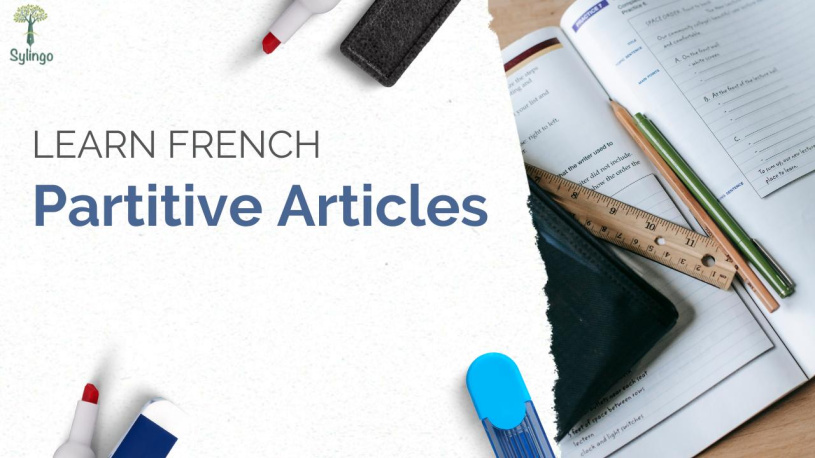Partitive articles in French are used to express an indefinite quantity of something uncountable or undetermined. They indicate a part or some of a whole, rather than specifying a specific quantity. Understanding how to use partitive articles correctly is crucial for expressing quantities in French accurately.
1. Forms of Partitive Articles:
|
féminin |
masculin |
|
|
de la |
du |
singulier |
|
(de l' (voyelles ou h |
||
|
des |
pluriel |
|
2. Usage of Partitive Articles:
Before Uncountable Nouns: Partitive articles are used before uncountable nouns to express an unspecified or indefinite quantity.
For example:
- Je mange de la soupe. (I am eating some soup.)
- Elle boit du lait. (She is drinking some milk.)
Negative Expressions: Partitive articles are used in negative expressions to indicate a lack of quantity. For example:
- Je ne bois pas de café. (I do not drink any coffee.)
- Il n'y a pas de pain. (There is no bread.)
Expressions of Quantity: Partitive articles are used in expressions of quantity to indicate a portion or some of something. For example:
- Il a mangé de la pizza. (He ate some pizza.)
- Nous avons besoin de vin. (We need some wine.)
Indefinite Expressions: Partitive articles are used with indefinite expressions to indicate an unspecified quantity. For example:
- Il y a beaucoup de fruits. (There are a lot of fruits.)
- J'ai peu de temps. (I have little time.)
3. Omission of Partitive Articles:
With Non-Countable Nouns: Partitive articles are typically omitted when referring to non-countable nouns in a general sense.
For example:
- J'aime le café. (I like coffee.)
4. Agreement with Gender and Number:
Partitive articles do not change in form to agree with the gender or number of the noun they modify. They remain "du" for masculine singular, "de la" for feminine singular, and "des" for plural nouns.
5. Practice Exercises:
Fill in the blanks with the appropriate partitive article:
-
Je bois ___ thé. (I drink some tea.)
-
Il mange ___ fromage. (He eats some cheese.)
-
Nous avons besoin ___ sucre. (We need some sugar.)
-
Elle ne boit pas ___ eau. (She does not drink any water.)
Answers:
-
Je bois du thé. (some)
-
Il mange du fromage. (some)
-
Nous avons besoin de sucre. (some)
-
Elle ne boit pas d''eau. (any)
Partitive articles are essential in French for indicating an indefinite or unspecified quantity of uncountable nouns. By understanding their forms, usage, and exceptions, you can effectively express quantities in various contexts in French conversations and writing. Practice using partitive articles to improve your proficiency in French language skills.





